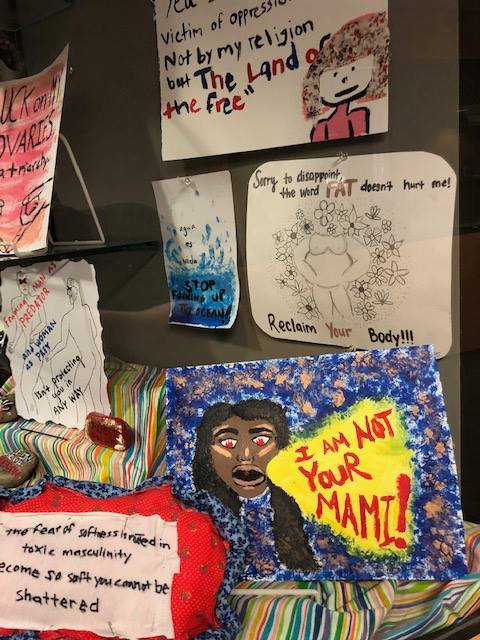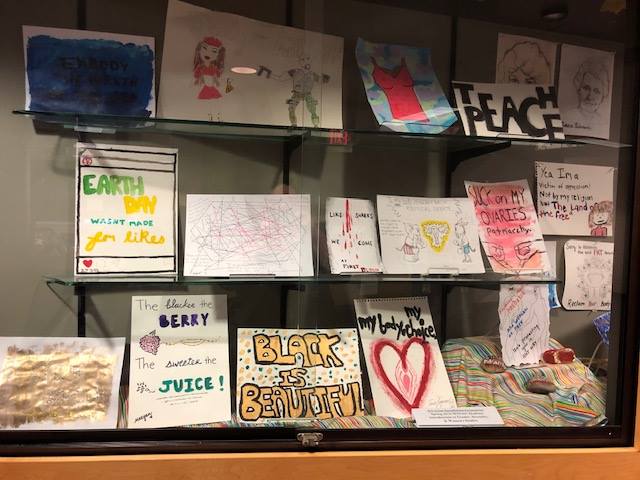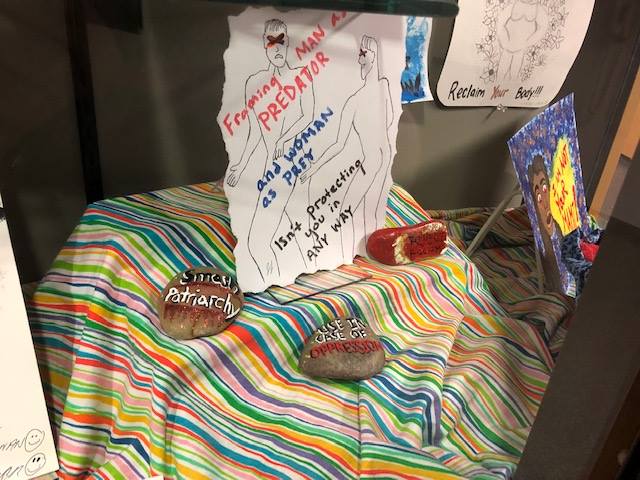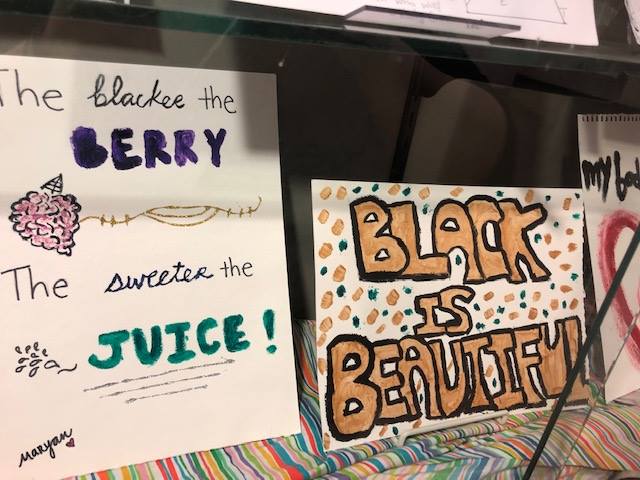Disability Justice Statement
My pedagogy is informed by queer, feminist, disability justice principles and these values overlap with (and sometimes exceed) accessibility and university accommodation policies required by the Americans with Disabilities Act (ADA). It is possible that students may still need accommodations if their plan has yet to be determined or implemented by campus Disability Services or if the student chooses not to work with campus Disability Services. Psychiatric disabilities are included under this disability justice statement regardless of the student’s diagnostic status or official recognition. Thus, I strive to accommodate students with disabilities that have yet to obtain documentation or officially register, choose not to register, or are not recognized as legally/clinically “disabled enough” for academic accommodations and/or have disabilities that are not fully recognized by the Rehabilitaiton Act of 1973. I want students to have a good experience in my class and I am glad to work in collaboration to make the course more accessible. Please note that I may not be able respond to all expressed needs. In that case, I will do my best to connect students to the appropriate person/resources for guidance and support.**
Gender, Sexuality, and Women's STudies
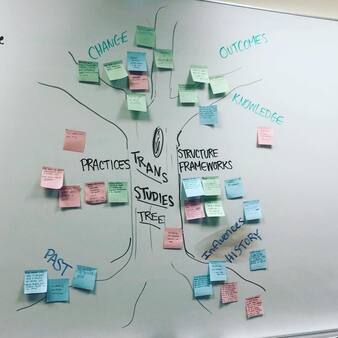
WST 201: Introduction to Gender, Sexuality, and Women's Studies
WST 481: Introduction to Transgender Studies
WST 400: Introduction to LGBTQIA+ Studies
WST 281: Introduction to Fat Studies*
WST 281: Nothing About Us Without Us: Dreaming Disability Justice
Left - A class exercise to sketch the field; of transgender studies, its scope, and goals using a tree metaphor. Each post-it note represents a student's response to questions: “What is trans studies?” “What influences/influenced the field?” “What histories does trans studies draw from?” "What does transgender studies attempt to accomplish?"
Multicultural Women and Gender STudies
|
MWGS 2013: Introduction to Multicultural Women and Gender Studies MWGS 3023: U.S. Women of Color MWGS 4023: Introduction to LGBTQIA+ Studies MWGS 4493: Feminist/Womanist/Indigenous Theories The personal Is Political Zine ProjectsDigital Zine Projects |
Feminist Art-Ivism displayTop right - Images of Art-ivism Display from introductory GSWS students exploring art as resilience and resistance. Genres featured: painting, drawing, and textile arts.
Middle left - Samples of introductory student projects studying feminist/womanist zine culture and DIY publishing efforts on a topic of their choice. Mediums used: drawing, collage, book-making, printing, digital art, digital collage on digital zine platforms. Bottom left - Samples of introductory student project studying feminist/womanist digital zine culture and DIY publishing efforts on topic of their choice. Digital zine featured: "Charcoal Masc" by Brendan Dechamps |
Independent Study Supervision
WST/SOCI 5380 Sexualities and Identities
GSWS 4380 Nothing About us Without Us: Studies in Disability Justice
Below - Supervised independent study students with arts-based, participatory research projects. Sample of student project on sexual violence and victim/survivor identity and experiences by Ashley Zukowski. Display titled: "Constructing Sexual Violence." (IRB approved project)
SOCIOLOGYSOC 1100: Introduction to Sociology SOC 1120: Sociology of Poverty SOC 5330: Sex and Sexualities SOC 3980: The Politics of Reproduction and Parenting Left top - Sample qualitative data coding exercise for mid/upper level sociology and GSWS students studying sexuality, sexual behavior, and attitudes toward contraceptives and STI prevention among men who have sex with men (MSM). Students examine raw qualitative data and study patterns in participant responses. Please do not use or copy without creator's permission. Left bottom - Sample two- and three-way cross tabulation to introduce students to cross-tabulated data presentation and analysis. Please do not use or copy without creator's permission. |
|
*Course proposed for the 2022 academic year
**Intellectual property of Sam R. Schmitt. Please do not copy or reproduce without permission from the author.
**Intellectual property of Sam R. Schmitt. Please do not copy or reproduce without permission from the author.
Proudly powered by Weebly

